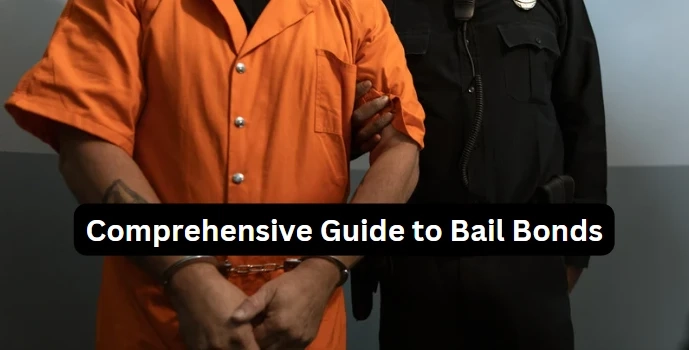When a loved one or friend is arrested, the last thing anyone wants is for them to spend more time in jail than necessary. In such situations, a bail bond can be an essential tool in securing their release. However, understanding the bail process can be overwhelming, especially if you’re unfamiliar with the legal system. In Wayne County, Michigan, the process is relatively straightforward, but there are important details to keep in mind.
This comprehensive guide will walk you through the bail bond process in Wayne County, providing useful information to help you make informed decisions if you find yourself in need of bail bond services.
What is a Bail Bond?
A bail bond is a financial guarantee that a defendant will appear in court as required. It’s typically posted by a bail bondsman, who charges a fee (usually around 10% of the total bail amount). If the defendant fails to appear in court, the bail bondsman is responsible for paying the full bail amount to the court. The defendant is then subject to arrest and additional legal consequences.
The Bail Process in Wayne County
1. Arrest and Booking
When an individual is arrested in Wayne County, they are taken to a local jail (such as the Wayne County Jail) for booking. This process involves recording personal information, taking fingerprints, and conducting a background check. During booking, a judge will set the bail amount based on the charges and the defendant’s criminal history.
2. Bail Hearing
In some cases, a judge will schedule a bail hearing. This is where the judge determines whether bail will be granted, and if so, how much it will be. Factors considered during the hearing include the severity of the charges, the defendant’s flight risk, and whether they pose a danger to the community.
3. Posting Bail
Once bail is set, the defendant or their representative can pay the required amount. Bail can typically be posted in cash or through a bail bond. If the defendant is unable to pay the full bail amount, a bail bond is an option.
4. Using a Bail Bond
A bail bond involves a third party (the bail bondsman) who agrees to pay the full bail amount on behalf of the defendant. In exchange for this service, the defendant or their representative pays a non-refundable fee, which is usually 10% of the bail amount. The bail bondsman may also require collateral, such as property or assets, to ensure the bond is secured.
5. Release and Court Appearance
Once the bail bond is posted, the defendant is typically released from jail. However, they are still required to attend all court hearings. If the defendant fails to appear, the bail bond will be forfeited, and the bail bondsman will pursue recovery of the bond amount.
Key Factors to Consider
1. Bail Bond Fees
Bail bond fees in Wayne County are generally around 10% of the total bail amount. This fee is non-refundable, even if the case is dismissed or the defendant is found not guilty.
2. Collateral
In some cases, a bail bondsman may require collateral to secure the bond. This could include real estate, vehicles, or other valuable property. Collateral ensures that the bail bondsman has a way to recover the bond amount if the defendant fails to appear in court.
3. Choosing a Bail Bondsman
It’s important to choose a reputable and reliable bail bondsman when securing a bail bond. In Wayne County, bail bondsmen must be licensed by the state of Michigan, and they are bound by legal and ethical obligations. Look for a company with experience, positive customer reviews, and a track record of helping defendants navigate the bail process successfully.
4. Failure to Appear
If the defendant does not appear in court as required, the bail bond will be forfeited, and the bail bondsman will seek to recover the funds. This may include hiring a bounty hunter to locate and apprehend the defendant. In this case, the individual who signed for the bond will be responsible for paying the entire bail amount.
5. Refunds
If the defendant meets all of their court obligations, the bail bond will be exonerated, and any collateral provided will be returned. However, the fee paid to the bail bondsman is non-refundable.
Common Questions About Bail Bonds in Wayne County
1. What if I can't afford the bail? If you cannot afford the bail set by the court, a bail bond can help you secure your release by paying a portion of the bail amount.
2. Can the bail bond be refunded? The fee paid to the bail bondsman is non-refundable. However, any collateral will be returned once the case is closed, assuming the defendant has complied with all court orders.
3. What happens if the defendant doesn't appear in court? If the defendant fails to appear in court, the bail bond is forfeited, and the bail bondsman will seek to recover the bond amount, which can result in legal action or the involvement of a bounty hunter.
Conclusion
Understanding the bail bond process can help alleviate some of the stress and confusion following an arrest in Wayne County. It’s essential to know the procedures, costs, and requirements to ensure that you can make informed decisions about your options. If you find yourself in need of bail bond services in Wayne County, consider working with a trusted company like Freedom Bail Bonds II Inc. They offer reliable and professional services, guiding you through the bail process with compassion and care. With their expertise and dedication, you can ensure a smoother experience during a difficult time.



